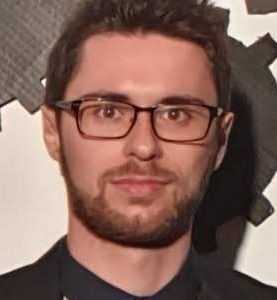The defense will take place on Thursday, July 7 at 2 pm, in the amphitheatre of the Telecommunications Department (Claude Chappe building), INSA Lyon, Villeurbanne.
The presentation will be available online: https://youtu.be/hX3t9pKPcoc
Title
Activity Models and Bayesian Estimation Algorithms for Wireless Grant-Free Random Access
Abstract
The new 5G’s wireless networks have recently started to be deployed all around the world. With them, a large spectrum of services are about to emerge, resulting in new stringent requirements so that 5G targets performance exceed that of 4G by a factor of 10. The services are centered around the use cases of enhanced mobile broadband (eMBB), ultra reliable and low-latency communication (uRLLC) and massive machine-type communication (mMTC) where each of which has required the ongoing development of key new technologies. Many of these technologies will also play an important role in the emergence of 6G.
In this thesis, the focus is on grant-free RA (GFRA) as an enabler of uRLLC and mMTC. GFRA is a new protocol introduced in 5G new radio (5G-NR) for reducing the data overhead of the random access (RA) procedure. This results in a significant reduction in the latencies of the user equipments (UEs) access to a connected medium via an access point (AP). Achieving efficient GFRA is of key importance for many 5G applications, e.g. for large scale internet of things (IoT) wireless networks. The study of new non-orthogonal multiple access (NOMA) signal processing techniques is then considered. Using tools from the theory of compressed sensing (CS), and particularly from Bayesian CS, new algorithms within the family of approximate message passing (AMP) are developed to address the joint active user detection and channel estimation (AUDaCE) problem. The active user detection is crucial to properly identify transmitting UEs within the context of large-scale dense network; the channel estimation is equally important so that an AP can reliably transmit back data to the detected UEs.
In this thesis, in contrast to existing work on this topic, the AUDaCE is studied for wireless networks where the activity of the UEs is assumed to be correlated, as is typical for many large-scale dense networks. To this end, two new activity models are introduced. The first one assumes that the activity of the UEs in the network can be modeled via group-homogeneous activity (GHomA) where devices in the same group have common pairwise correlations and marginal activity probabilities. The second model accounts for more general dependence structure via group-heterogeneous activity (GHetA). Novel approximate message passing algorithms within the hybrid GAMP (HGAMP) framework are developed for each of the models. With the aid of latent variables associated to each group for modeling the activity probabilities of the UEs, the GHomA-HGAMP algorithm can perform AUDaCE for GFRA leveraging such a group homogeneity. When the activity is heterogenous, i.e. each UE is associated with a latent variable modeling its activity probability correlated with the other variables, it is possible to develop GHetA-HGAMP using the copula theory.
Extensive numerical studies are performed, which highlight significant performance improvements of GHomA-HGAMP and GHetA-HGAMP over existing algorithms (modified generalized AMP (GAMP) and group-sparse HGAMP (GS-HGAMP)), which do not properly account for correlation in activity. In particular, the channel estimation and active user detection capability are enhanced in many scenarios with up to a 4dB improvement with twice less user errors.
As a whole, this thesis provides a systematic approach to AUDaCE for wireless networks with correlated activities using tools from Bayesian CS. We then conclude by showing how it could be used for multi-carrier orthogonal frequency division multiplexing (OFDM) scenarios with possible extensions for grant-free (GF) data transmission leveraging joint data recovery, active user detection and channel estimation (DrAUDaCE).
Jury
- Catherine DOUILLARD, Professor @ IMT Atlantique, Reviewer
- Dejan VUKOBRATOVIC, Professor @ Univ. Novi Sad, Reviewer
- Aline ROUMI, Senior Research Scientist @ INRIA Rennes, Examiner
- Philippe CIBLAT, Professor @ Telecom Paris, Examiner
- Cedomir STEFANOVIC, Professor @ Univ. Aalborg, Examiner
- Jean-Marie GORCE, Professor @ INSA Lyon, Director
- Malcolm EGAN, Research Scientist @ INRIA Lyon, Supervisore

